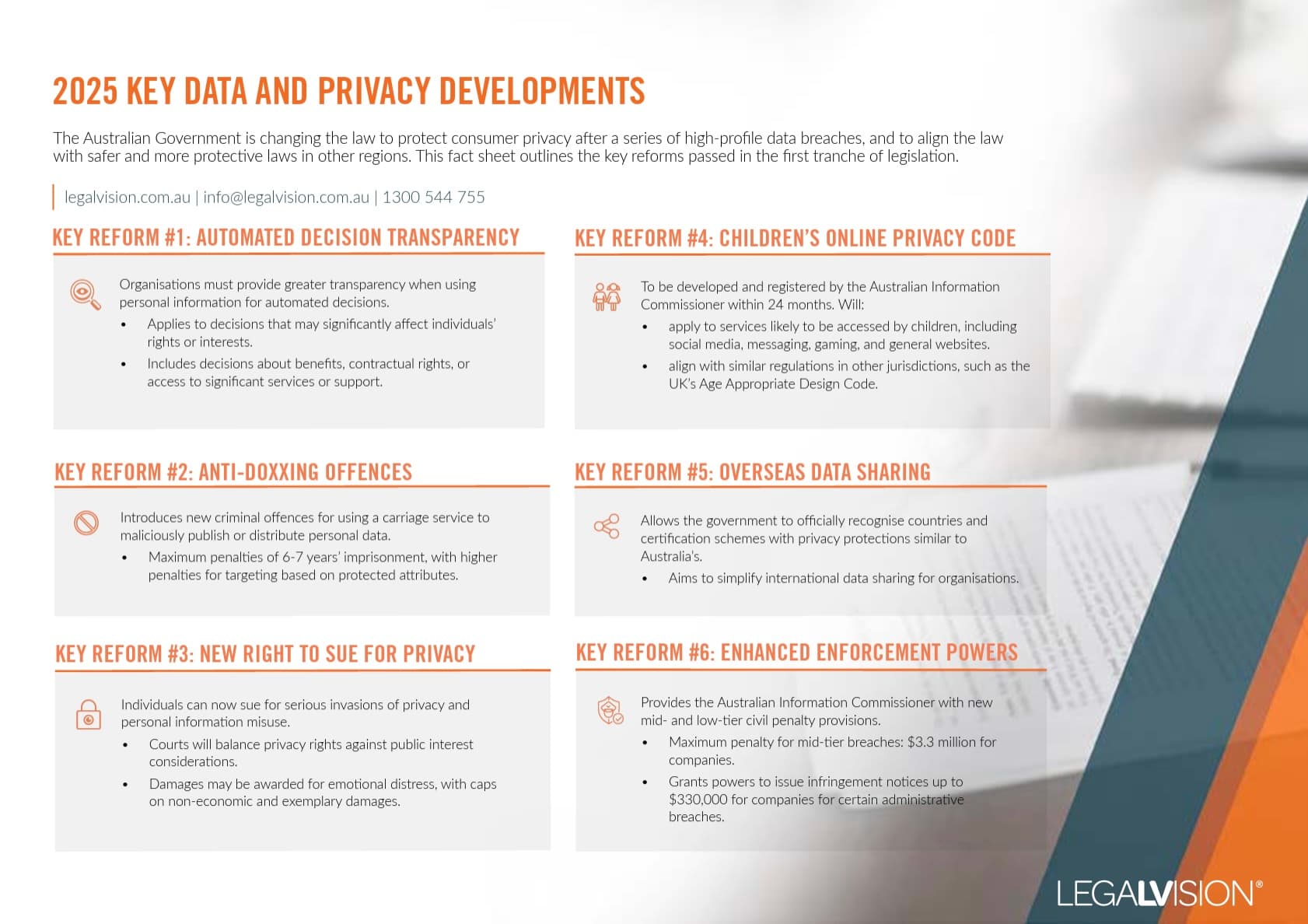Under Australian copyright law, you are allowed to use another person’s copyright-protected material if you have the consent of the owner; or can rely on the excuse of ‘fair dealing’. If your use is protected by fair dealing, you do not need the owner’s consent. Fair dealing permits limited use and reproduction of copyrighted materials for:
- criticism;
- review;
- research and study;
- satire; or
- parody.
This article will explain what fair dealing is and whether your business can rely on it in online settings.
What is Fair Dealing?
As a business, you may be using images or other copyrighted material when promoting your business online. If you do not have the correct licences to use this work, you may still be covered under the fair dealing defence.
Fair dealing applies when you have used a person’s work without their consent, but your use has been ‘fair’ and for the purpose of:
- research or study;
- criticism or review;
- parody or satire;
- reporting news;
- fair dealing for professional advice; or
- educational and special use exceptions.
Each exception requires you to take various steps when using the material, such as providing attribution or only using a specified amount. If you intend to rely on fair dealing, you must ensure you follow these requirements correctly.
What is considered ‘fair’ will depend on the circumstances, such as:
- how much of the work you used;
- whether you used it commercially; and
- whether it hinders the owner’s own use of their work.
Fair Use vs Fair Dealing
It’s common to confuse fair use and fair dealing, but they are actually different! While both allow you to use someone else’s copyrighted work without breaking the law, fair dealing applies in Australia and fair use is the United States equivalent.
Fair dealing differs from fair use in that:
- it is a more restrictive defence; and
- can only apply to copyrighted material where you used it fairly and for a specific recognised purpose.

This factsheet outlines the Australian Government’s strengthened consumer privacy laws in 2025 following major data breaches and their alignment with global standards.
How Does Fair Dealing Apply Online?
The fair dealing principles extend to online environments in the same way as other forums. You must still make sure that the purpose of your use is covered by fair dealing.
Publication of copyrighted material on the internet, where content can be easily accessed worldwide, can be particularly sensitive. If you publish copyrighted material and are not protected under fair dealing, you could face significant legal liability. Therefore, you should ensure that you are covered by fair dealing or seek professional legal advice before using copyrighted material.
What Can I Do if Someone Claims I Am Breaching Their Copyright?
If you have used copyrighted material without the owner’s consent or the excuse of fair dealing, you should cease use immediately. This is especially important if the owner has made a complaint, as ceasing use is usually the end of any copyright disputes.
However, you should be aware that the owner can still take action in court within six years of your infringement. If the court finds that you have committed copyright infringement, they may order you to cease use or pay the owner.
Key Takeaways
If you are using copyrighted material online without the consent of the owner, you may be covered under fair dealing and therefore not committing infringement. You should consider whether fair dealing applies to your business, based on whether:
- your use is fair, depending on the amount of material and type of use; and
- the purpose of your use is covered by fair dealing.
It is essential to understand that although fair dealing provisions exist, they have certain limitations, and you must use them responsibly.
If you have questions about posting images or other content online, our experienced intellectual property lawyers can assist as part of our LegalVision membership. For a low monthly fee, you will have unlimited access to lawyers to answer your questions and draft and review your documents. Call us today on 1300 544 755 or visit our membership page.
We appreciate your feedback – your submission has been successfully received.












